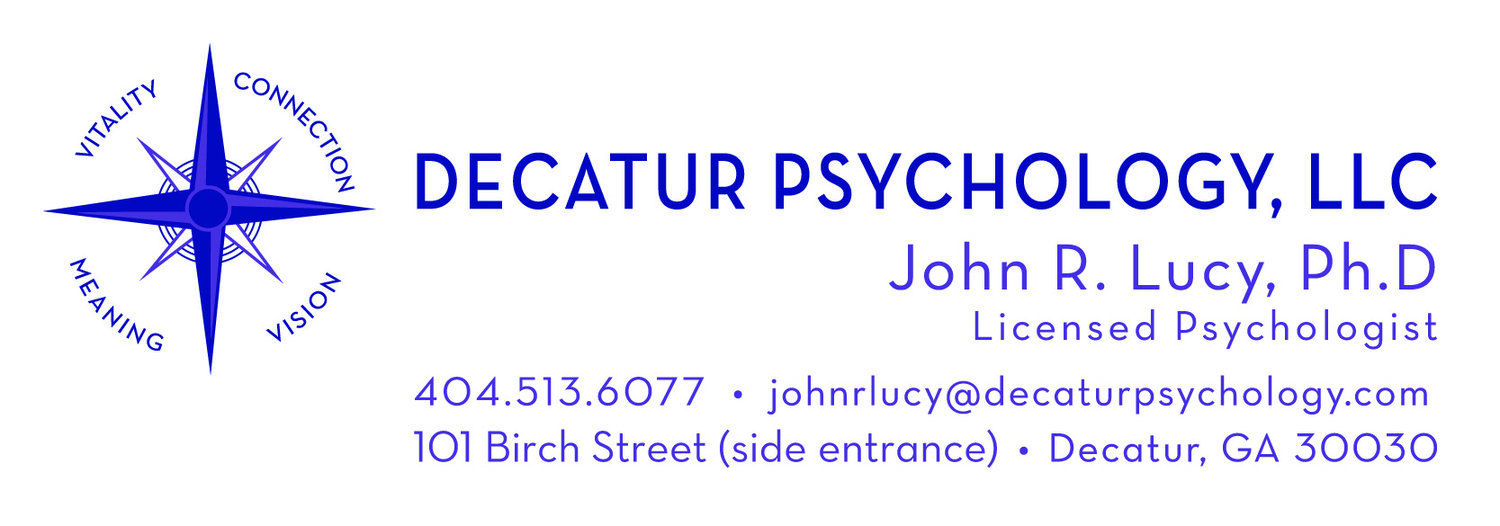Individual Counseling FAQ
What is your approach to individual counseling?
I approach counseling as a collaborative process designed to help individuals address their concerns, deepen understanding of themselves, and restore greater flexibility in how they relate to their thoughts, emotions, relationships, and life circumstances. At the center of this process is a confidential and trusting relationship between an individual and a trained therapist who is committed to supporting their goals at a pace that feels safe and workable. Confidentiality helps create the conditions for exploring one’s inner experience with honesty and care.
I take an active, engaged approach focused on identifying the internal and external self-reinforcing patterns that contribute to distress. These patterns often developed for good reasons—as ways of coping with vulnerability, stress, or relational challenge—but can become limiting over time. Therapy involves becoming curious about these patterns and gently experimenting with new ways of responding, rather than forcing change before the system is ready.
While the process sometimes involves contacting difficult emotions or experiences, my goal is not to push openness or intensity for its own sake. Instead, we work together to ensure that exploration occurs within a context of sufficient safety, support, and coherence. I strive to offer a non-judgmental, steady, and encouraging presence as you take the risks that feel appropriate for you, allowing change to emerge in a way that can be integrated into daily life.
Depending on the presenting concerns, my work draws from an integrative framework that includes:
Acceptance and Commitment Therapy
Pragmatic Experiential Method
Constructivist and Narrative Approaches
Cognitive-Behavioral Therapy
Existential Therapy
Evolutionary Psychology
These approaches are used flexibly and collaboratively, guided by your unique history, values, and current life context, as well as by my clinical experience and ongoing professional development.
When should I seek counseling?
In general, individuals find the counseling process helpful when they are having trouble experiencing pleasure in their lives or they are experiencing emotional pain; when they are struggling with low self-esteem; when they feel limited by their own fears and worries; when they are having trouble making sense of life; or when they are unable to develop satisfying relationships. However, many individuals also find a counseling relationship helpful even when life is going well as a means of finding ways to expand or reflect on their lives.
No one answer is right for everyone, but if you are experiencing some of the following, then counseling might help:
Your feelings are affecting your sleep, eating, job, and relationships.
You feel as if you can't do it alone.
You feel trapped and as if there's nowhere to turn.
You are increasingly turning to alcohol, drugs, or other addictive behaviors to change the way your feel.
You feel stuck in behaviors that hurt you in the long run.
Your worries and fears are significantly limiting what you feel comfortable doing in life.
You worry all the time and never seem to find solutions to your problems.
You've tried to change, but things aren't getting better.
You are caught in unhealthy relationship patterns.
What are the kinds of problems you treat?
Fears, anxiety and depression
Managing time and stress
Family and relationship issues
Substance abuse and other behavioral addictions
Working through traumatic experiences
Career changes and job stress
Adapting to life changes
Grief and bereavement
Problems with shame
Problems dealing with anger
As a clinical psychologist, I am trained in the evaluation, diagnosis, and treatment of mental disorders. The term mental disorder is not really an ideal term as it implies a separation between the "mental" and the "physical" which does not reflect current scientific understanding or my own approach. Unfortunately a better term has not reached public consensus. In current understanding, mental disorders or mental illness are terms that are used to refer to psychological or physiological patterns that occur in individuals and are usually associated with distress or disability that is not expected as part of normal development or culture. The recognition and understanding of mental disorders has evolved over time and are based on a consensus of current formulations. A diagnosis of a mental disorder can inform treatment options and in some cases may support further evaluation regarding treatment with medication. A diagnosis is also generally required for health insurance reimbursement.
